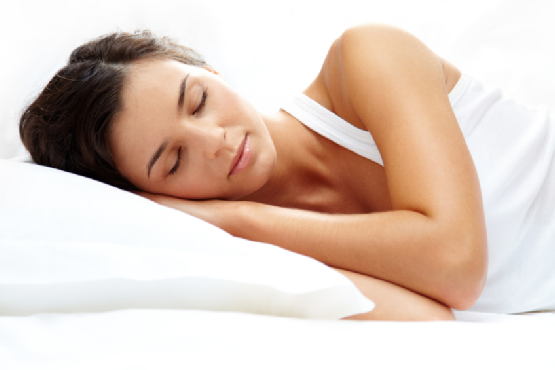Cooling Your Pillow In The Fridge May Help You Sleep

To keep a cooler head during the heat wave, health experts recommend stashing your bed pillow in the refrigerator during the day — to help lull sleep by lowering core body temperature.
As seasonal heat settles on the Northeast and other parts of the United States, slightly more than one-third of housing units lack air-conditioning, according to 2011 figures from the U.S. Census Bureau. For many, high temperatures lingering into the later evening hours affect the body's natural cooling process that allows good sleep.
"The body normally releases heat through hands, face, and feet around the time of sleep onset, and usually continues to cool until around 4 a.m.," Chris Idzikowski, director of the Edinburgh Sleep Centre and author of Sound Asleep, told reporters. "If anything prevents that decrease in temperature, then sleep quality is impaired and it is difficult to fall asleep."
Ideal temperature for sleep lies at approximately 64°F (18°C), although cooler temperatures tend to wake the sleeper unless modulated with proper linen and blankets. The choice of linen is important, too, Idzikowski said. "Try using a mattress protector made from cotton wadding — natural fibers wick away moisture from your skin."
Although sleeping on the roof or outside may not be an option for most in cities and suburbs, Idzikowski recommends preparing your bedroom Mediterranean-style, by leaving blinds and curtains closed during the day to keep out the sun, opening the windows in the evening once the heat has abated.
In the event of trouble getting to sleep, Idzikowski advises insomniacs to "run your wrists and hands under the cold tap for a few minutes. Dry your hands and go straight back to bed."
The next morning after a tough night of sleep, many people wonder how they might counteract the effects of sleep loss, worrying about their increasing debt to the Sandman. However, that debt may be repaid on an installment plan at surprisingly reasonable rates. "Any amount of sleep will be helpful," Idzikowski said. "You don't have to match what you've lost."
As sleep cycles last 90 minutes or so for adults, catching the deep sleep from one of those cycles — say, 30 minutes of napping — may help dramatically.
"So if you can get one and a half hours [of napping], that's fantastic because the odds are you'll have had a whole cycle," he said. "But even if you reduce it to 30 minutes, the chances are the deep sleep will have happened and [you get] a lot of recovery from that."
But perhaps most importantly, people should try to refrain from worrying about sleep, as stress hormones tend to worsen problems with sleep.



























